-
 French IT giant Capgemini to sell US subsidiary after row over ICE links
French IT giant Capgemini to sell US subsidiary after row over ICE links
-
Iran's Khamenei likens protests to 'coup', warns of regional war

-
 New Epstein accuser claims sexual encounter with ex-prince Andrew: report
New Epstein accuser claims sexual encounter with ex-prince Andrew: report
-
Italy's extrovert Olympic icon Alberto Tomba insists he is 'shy guy'

-
 Chloe Kim goes for unprecedented snowboard halfpipe Olympic treble
Chloe Kim goes for unprecedented snowboard halfpipe Olympic treble
-
Pakistan combing for perpetrators after deadly separatist attacks

-
 Israel partially reopens Gaza's Rafah crossing
Israel partially reopens Gaza's Rafah crossing
-
Iran declares European armies 'terrorist groups' after IRGC designation

-
 Snowstorm disrupts travel in southern US as blast of icy weather widens
Snowstorm disrupts travel in southern US as blast of icy weather widens
-
Denmark's Andresen swoops to win Cadel Evans Road Race

-
 Volkanovski beats Lopes in rematch to defend UFC featherweight title
Volkanovski beats Lopes in rematch to defend UFC featherweight title
-
Sea of colour as Malaysia's Hindus mark Thaipusam with piercings and prayer

-
 Exiled Tibetans choose leaders for lost homeland
Exiled Tibetans choose leaders for lost homeland
-
Afghan returnees in Bamiyan struggle despite new homes

-
 Mired in economic trouble, Bangladesh pins hopes on election boost
Mired in economic trouble, Bangladesh pins hopes on election boost
-
Chinese cash in jewellery at automated gold recyclers as prices soar

-
 Israel to partially reopen Gaza's Rafah crossing
Israel to partially reopen Gaza's Rafah crossing
-
'Quiet assassin' Rybakina targets world number one after Melbourne win

-
 Deportation raids drive Minneapolis immigrant family into hiding
Deportation raids drive Minneapolis immigrant family into hiding
-
Nvidia boss insists 'huge' investment in OpenAI on track

-
 'Immortal' Indian comics keep up with changing times
'Immortal' Indian comics keep up with changing times
-
With Trump mum, last US-Russia nuclear pact set to end

-
 In Sudan's old port of Suakin, dreams of a tourism revival
In Sudan's old port of Suakin, dreams of a tourism revival
-
Narco violence dominates as Costa Rica votes for president

-
 Snowstorm barrels into southern US as blast of icy weather widens
Snowstorm barrels into southern US as blast of icy weather widens
-
LA Olympic chief 'deeply regrets' flirty Maxwell emails in Epstein files

-
 Rose powers to commanding six-shot lead at Torrey Pines
Rose powers to commanding six-shot lead at Torrey Pines
-
The Blessing of Good Fortune Is Here: Own Equity in a Lithium Mining Company - Elektros Inc. - at a Bottom-Basement Discount, Right Here, Right Now

-
 Barca wasteful but beat Elche to extend Liga lead
Barca wasteful but beat Elche to extend Liga lead
-
Konate cut short compassionate leave to ease Liverpool injury crisis

-
 Dodgers manager Roberts says Ohtani won't pitch in Classic
Dodgers manager Roberts says Ohtani won't pitch in Classic
-
Arsenal stretch Premier League lead as Chelsea, Liverpool stage comebacks

-
 Korda defies cold and wind to lead LPGA opener
Korda defies cold and wind to lead LPGA opener
-
New head of US mission in Venezuela arrives as ties warm

-
 Barca triumph at Elche to extend Liga lead
Barca triumph at Elche to extend Liga lead
-
Ekitike, Wirtz give Liverpool sight of bright future in Newcastle win

-
 West Indies 'tick boxes' in shortened T20 against South Africa
West Indies 'tick boxes' in shortened T20 against South Africa
-
Chelsea have something 'special' says Rosenior

-
 De Zerbi 'ready to go to war' to solve Marseille troubles
De Zerbi 'ready to go to war' to solve Marseille troubles
-
Hornets hold off Wemby's Spurs for sixth NBA win in a row

-
 Moyes blasts killjoy booking after Everton's late leveller
Moyes blasts killjoy booking after Everton's late leveller
-
Ex-prince Andrew again caught up in Epstein scandal
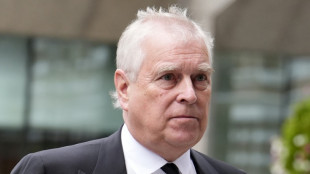
-
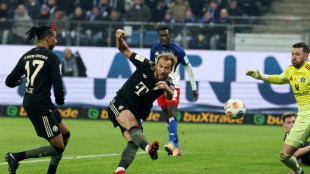 Bayern held at Hamburg to open door for Dortmund
Bayern held at Hamburg to open door for Dortmund
-
Atletico stumble to draw at Levante, Villarreal held
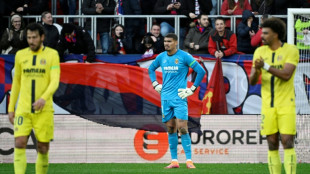
-
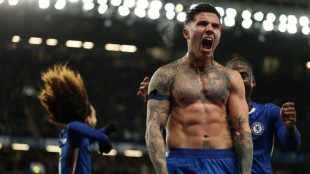 Chelsea stage impressive fightback to beat West Ham
Chelsea stage impressive fightback to beat West Ham
-
Arsenal stretch Premier League lead, Chelsea fightback breaks Hammers' hearts
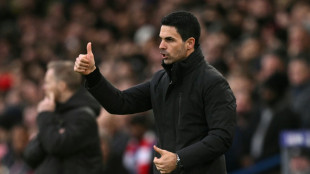
-
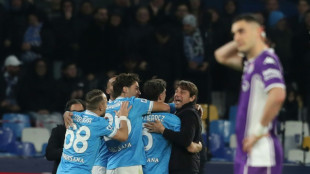 Napoli edge Fiorentina as injury crisis deepens
Napoli edge Fiorentina as injury crisis deepens
-
How Lego got swept up in US-Mexico trade frictions

-
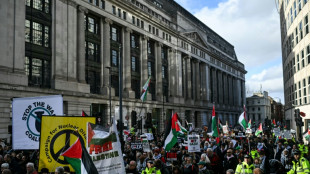 UK rights campaigner Tatchell arrested at pro-Palestinian protest
UK rights campaigner Tatchell arrested at pro-Palestinian protest
-
Iran says progress made towards US talks despite attack jitters
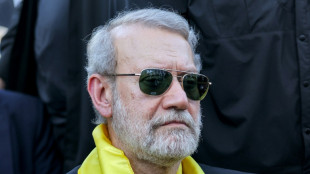
Why Russia can’t end war
Nearly four years into Moscow’s full‑scale invasion of Ukraine, there is no sign that the Kremlin is preparing to withdraw its troops or relinquish occupied territories. The war has devastated Ukrainian infrastructure and caused horrific human rights violations, yet the Russian government shows little appetite for ending the conflict. This refusal is rooted in ideology, domestic politics, military calculations, economic factors and public opinion. Understanding why Russia cannot end the war requires examining each of these dimensions.
Ideological and historical motivations
At its core, the conflict is driven by a belief that Ukraine belongs in Russia’s sphere of influence. The Kremlin demands that the West respect a kind of “Monroe doctrine” for Russia and stop bringing neighbouring states into the Western alliance. Preventing Ukraine from joining NATO and reasserting dominance over the former Soviet space are central goals. Russian leaders portray the war as an existential struggle against Western encirclement and a continuation of Russia’s fight for great‑power status. This ideological framing means that a negotiated end that leaves Ukraine free to choose its alliances is viewed as defeat. The war thus fulfils a narrative of historical justice and national revival, making withdrawal politically unpalatable.
Regime survival and domestic politics
The invasion has become a pillar of the Russian political system. Moscow’s leadership invests significant resources in the military‑industrial complex and dedicates roughly two‑fifths of its federal budget to defence and security. Reversing course could call into question the enormous human and economic costs already incurred—nearly a million Russian casualties—and undermine the regime’s legitimacy. Analysts note that President Vladimir Putin uses the war to consolidate patronage networks and justify increasing authoritarian control. Domestic opposition is suppressed, and state media portrays the conflict as necessary for Russia’s security. In this environment, there is little public pressure to end the war; volunteer recruitment continues thanks to high bonuses, replenishing losses, and those who favour peace often support a cease‑fire only if Moscow retains its territorial gains.
Ending the war would also create a dilemma. A cease‑fire that left Russia occupying vast areas of Ukraine would require Moscow to maintain a huge army of conscripts and volunteers, consuming resources and risking domestic discontent. Demobilising this army could trigger unemployment and social unrest. For the Kremlin, continued fighting is therefore less risky than an abrupt peace that could threaten its grip on power.
Military stalemate and strategic calculations
Despite substantial casualties and equipment losses, Russian forces continue offensive operations because Moscow believes time favours its strategy. Experts estimate Russia loses around 100–150 troops per square kilometre, yet the leadership expects to outlast Ukraine and the West. A cease‑fire that leaves Ukraine free to integrate with NATO is unacceptable to the Kremlin. Conversely, Ukraine refuses to renounce NATO membership or surrender occupied territories. This stalemate means neither side will compromise until the costs become unbearably high.
Russia’s war machine has adapted to attritional fighting. Moscow has scaled up drone production and directed its industrial base toward a war economy, offsetting heavy losses in conventional arms. Analysts warn that each year of offensive operations costs Russia 8–10 % of its GDP and hundreds of thousands of casualties. Yet the regime calculates that these losses are sustainable if they help achieve strategic objectives. Until Ukraine’s armed forces and its foreign backers impose unbearable military costs, Moscow has little incentive to cease hostilities.
War economy and financial resilience
The Russian economy has proven more durable under sanctions than many expected. Years of tight fiscal policy allowed Moscow to accumulate large foreign exchange reserves and build a “Fortress Russia” economy. By early 2022, Russia held over $600 billion in reserves and kept public debt below one‑fifth of GDP. Current account surpluses and high energy revenues enabled the government to continue funding the war. War spending has stimulated industrial output and driven nominal GDP growth, while the departure of international firms has reduced competition, allowing domestic companies to gain market share.
However, this resilience masks growing imbalances. Defence spending has added about $100 billion per year to the budget, and the combined economic losses from sanctions and war are estimated at trillions of US dollars. Economists note that real GDP growth is roughly a tenth smaller than it would have been without the war. The war economy has created labour shortages; up to two million Russians are abroad and hundreds of thousands have been killed or wounded. Industrial capacity is nearing its limits, inflation remains high, and Russia’s central bank has raised interest rates sharply. Analysts warn that this stagflationary environment could erode living standards and strain public finances. The state has been forced to draw down its National Wealth Fund and raise taxes to cover growing deficits. Yet the economic costs have not prompted a policy change; propaganda and repression continue to dampen discontent.
Public sentiment and the social contract
Russian society has largely adapted to wartime conditions. While surveys indicate that many Russians are weary of the conflict, most support peace only if it secures Moscow’s territorial gains. As long as the Kremlin presents the war as protecting Russian speakers and defending the nation against Western aggression, domestic support remains sufficient. Humanitarian gestures such as prisoner exchanges or grain exports can boost support for talks, but there is no broad movement demanding withdrawal. The combination of propaganda, control of the media and modest improvements in wages for some sectors has kept dissatisfaction at bay. Without a significant shift in public opinion, there is little internal pressure on leaders to end the war.
International dynamics and peace prospects
External actors have limited leverage over Russia’s decision‑making. Western sanctions have slowed economic growth and restricted access to technology, but they have not forced Moscow to change course. Alternative supply chains through China, Iran and North Korea provide military inputs. Diplomatic efforts, including U.S.–Russia talks and European mediation, have yet to produce progress. Commentators note that Russia views negotiations as a means to impose its terms; absent recognition of its sphere of influence, it prefers to continue the war. Meanwhile, Western political fatigue and competing global crises reduce the likelihood of sustained pressure on Russia. Unless Ukraine and its partners can decisively shift the military balance or undermine the economic foundations of the war, the Kremlin is unlikely to agree to a settlement.
Conclusion
Russia’s inability to end the war in Ukraine stems from a combination of ideological ambitions, regime survival, military calculations, economic adaptation and public acquiescence. The conflict serves the Kremlin’s strategic goals of preventing Ukraine’s Western integration and reasserting Russian dominance.
It sustains the domestic political order and justifies expanding authoritarian control. Despite immense losses and economic strain, Moscow calculates that continuing the war is less risky than accepting a negotiated peace that would leave its goals unmet. Until these underlying drivers change—through decisive military setbacks, deeper economic crises or a shift in public sentiment—Russia’s war in Ukraine is likely to endure.

EU countries agree on watered-down car emissions proposal

Hungary-Dictator PM Orban claims EU 'deceived' Hungary

Ruble at the end: Russia's currency on the brink of collapse
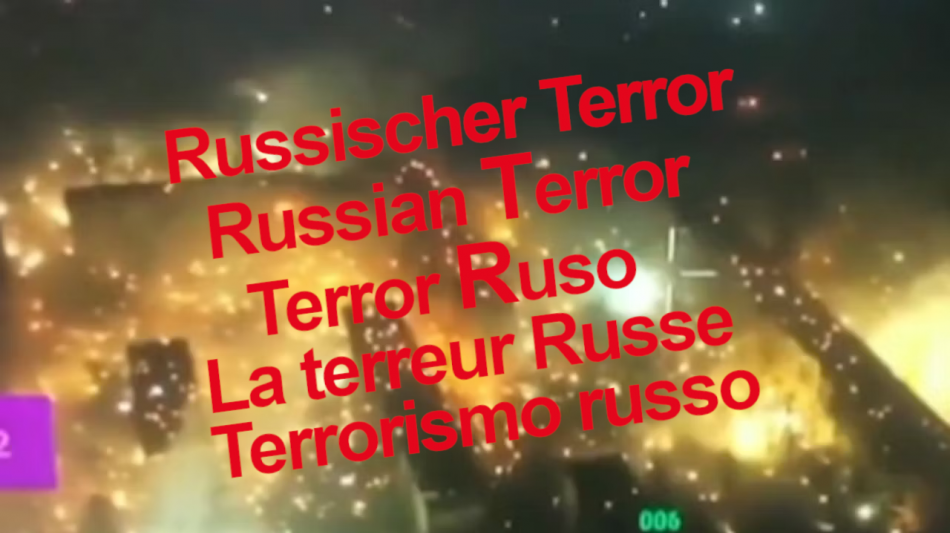
Russia in Ukraine: murder, torture, looting, rape!
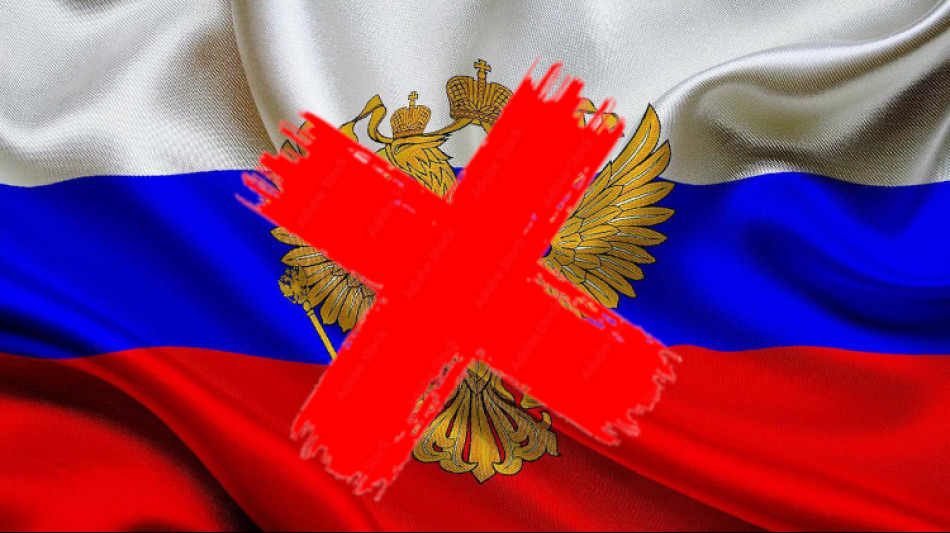
That's how terror Russians end up in Ukraine!

Spain: Sánchez's aim of a left coalition will fail!
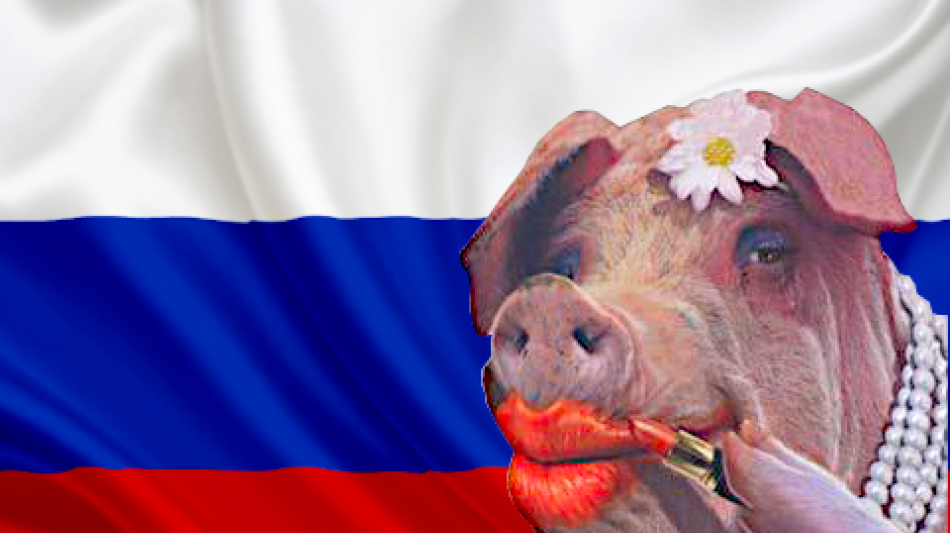
Russland, der Terror-Staat / Russia, the terrorist state!

Ukraine in the fight against the russian terror State

The Russian criminals will never own Ukraine!

ATTENTION, ATENCIÓN, УВАГА, ВНИМАНИЕ, 注意事项, DİKKAT, 주의, ATENÇÃO

UNESCO accepts the US back into the fold after a five-year absence



